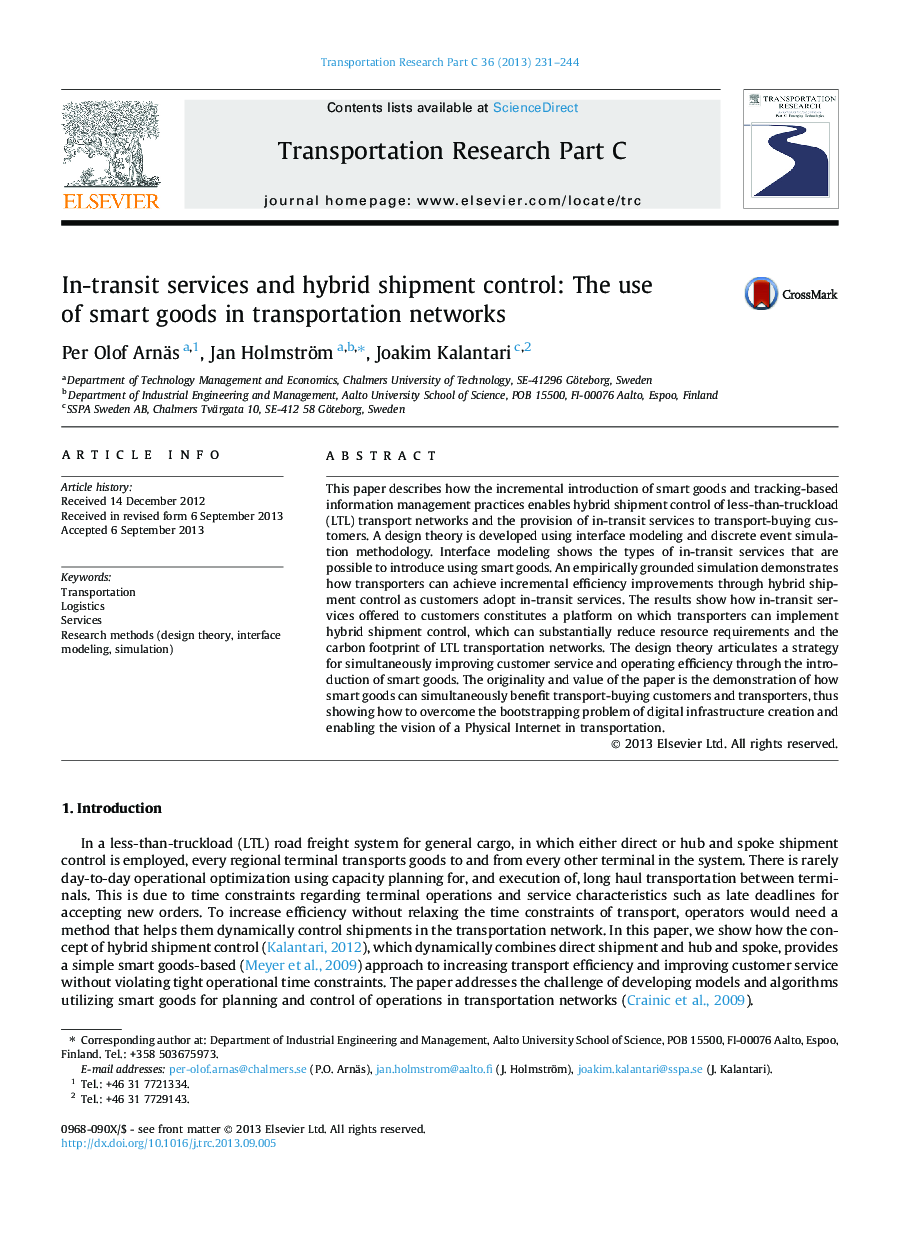| Article ID | Journal | Published Year | Pages | File Type |
|---|---|---|---|---|
| 6937267 | Transportation Research Part C: Emerging Technologies | 2013 | 14 Pages |
Abstract
This paper describes how the incremental introduction of smart goods and tracking-based information management practices enables hybrid shipment control of less-than-truckload (LTL) transport networks and the provision of in-transit services to transport-buying customers. A design theory is developed using interface modeling and discrete event simulation methodology. Interface modeling shows the types of in-transit services that are possible to introduce using smart goods. An empirically grounded simulation demonstrates how transporters can achieve incremental efficiency improvements through hybrid shipment control as customers adopt in-transit services. The results show how in-transit services offered to customers constitutes a platform on which transporters can implement hybrid shipment control, which can substantially reduce resource requirements and the carbon footprint of LTL transportation networks. The design theory articulates a strategy for simultaneously improving customer service and operating efficiency through the introduction of smart goods. The originality and value of the paper is the demonstration of how smart goods can simultaneously benefit transport-buying customers and transporters, thus showing how to overcome the bootstrapping problem of digital infrastructure creation and enabling the vision of a Physical Internet in transportation.
Keywords
Related Topics
Physical Sciences and Engineering
Computer Science
Computer Science Applications
Authors
Per Olof Arnäs, Jan Holmström, Joakim Kalantari,
